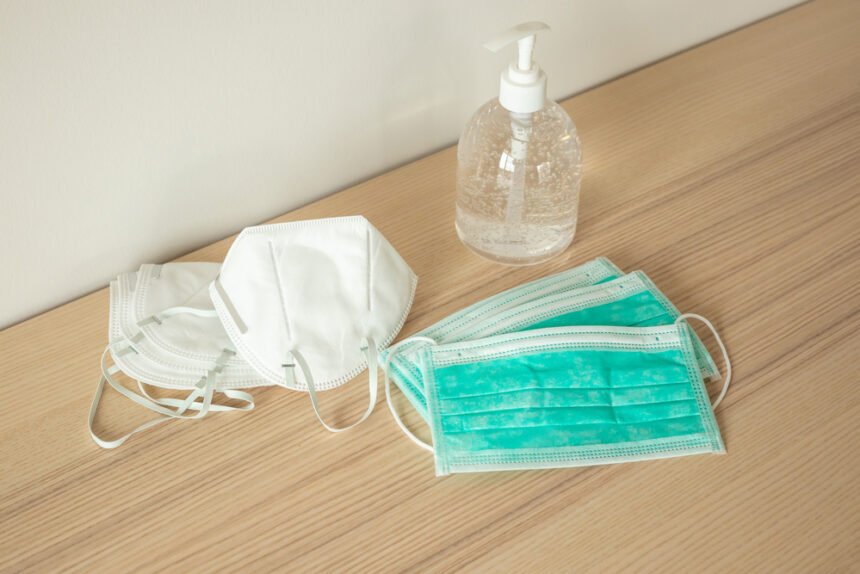In the unprecedented time that COVID-19 is, health and care workers, especially those who operate on the frontline, have emerged as heros. They are constantly working overtime to protect communities from getting caught by the novel coronavirus and even stop the transmission at the ground level.
However, if there’s anything that reality shows, behind the hero cape lies a lot of anxiousness and statistics highlighting the growing number of frontline healthcare workers getting COVID-19 positive. In such dire situations, it has become the first responsibility of every tech expert working against COVID-19 transmission to use all the technologies at their disposal.
One such technology that the industry has turned their focus towards is Artificial Intelligence. Let us today deep dive into how AI technology is helping the healthcare industry protect their frontline health workers.
How can AI be used to aid hospitals and frontline health workers
- Screen infected people
This one is one of the most popular, widespread use cases of AI in the healthcare ecosystem. Hospitals, from across the globe, have developed a series of automated tools allowing patients to check symptoms and get precautionary advice or simply be notified of when to seek medical help.
There are many healthcare agencies like the OSF HealthCare of Illinois and Cleveland Clinic that have developed their own chatbots while there are others which have partnered with tech giants like Microsoft and are using their chatbot systems.
The developers code into the knowledge and recommendations received from CDC guidelines and put them into the chatbots. The chatbots then help people to check their symptoms and gauge if they need medical assistance. All of this helps people self-monitor without risking their and the frontline health workers’ wellbeing.
2. Screen the frontline health workers
AI is also being used to catch symptoms of illnesses in the healthcare workers especially the ones that are at a high risk of getting infected. An example of this can be seen in how University of California researchers have been using wearable rings for tracking the health and care workers’ vitals for COVID-19 indications.
Those signs can be fed in an algorithm that gives the hospitals heads-up about the staff who need to be isolated or would need medical care.
3. Identify high-risk patients
Businesses have started identifying patients that are at high risk of getting infected from coronavirus and then contacting them proactively. An example of this can be seen in Clover, an insurance startup. It is using an AI algorithm for identifying patients who are most at risk of getting infected by the novel coronavirus.
Their algorithm makes use of three data types: patients’ frailty index score, an algorithm that company uses for flagging people who are in need of hospital readmission, and data on whether the patient has a condition that makes them extra prone to COVID-19. These data are helping them reach out to high-risk patients and let them know about the potential challenges and symptoms.
4. Upskill healthcare workers
AI is one of the key technologies that upskill healthcare workers in a scalable, rapid, and cost-effective way. There are a number of solutions that make use of machine learning and artificial intelligence for equipping frontline caregivers with the skills that they need to provide help.
There are some solutions that offer decision support for helping workers treta or simply diagnose illnesses. While there are others that provide training tools which help set up realistic scenarios that help the workers practice the correct responses.
5. Make supply chain solutions efficient
The absence of medical supplies and limited access to necessary medications has always been a concern for the healthcare industry. But with COVID-19 the challenge has come on the forefront.
The time to find a solution to this issue is more of importance in the present time with researchers being only a few months away from getting a vaccine. However, supply chain issues don’t work in silos. Solutions have to be found around demand and supply data, partnerships have to be made with parties across the supply chain, finances have to be taken care of, etc. in addition to this, there are complexities at every stage.
There is a need for AI solutions that would streamline delivery of supply and medicines in areas which doesn’t necessarily have central distributors.
6. Take care of mental health
Healthcare workers tend to be least proactive when it comes to seeking guidance or counseling. But with the constant fear of getting affected from coronavirus because of the nature of their job is making them more anxious and stressed than before.
Understanding the seriousness of the current situation, there is a pressing need for mental wellness apps designed for healthcare workers. What should be different in them is that they should note the time crunch that healthcare workers face while respecting their anonymity.
7. Track hospital beds and ventilators
Artificial Intelligence is being used by the healthcare industry for answering crucial questions like when would a hospital run out of bed, ventilators, kits, and other resources.
A new tracking tool has been developed by Definitive Healthcare and Esri that uses spatial analytics software and mapping to measure the hospital bed capacities in the U.S. The AI driven solution tracks location, number of beds and intensive care beds. It then gives an average utilization rate.
Another model developed by Qventus uses the flu model of CDC for predicting when they would reach a breaking point.
Here were the different ways Artificial Intelligence is being used by the healthcare industry to support their frontline health workers. If there’s one thing concrete in the pandemic situation it is the fact that AI is working in collaboration with healthcare providers to find render coronavirus ineffective.

